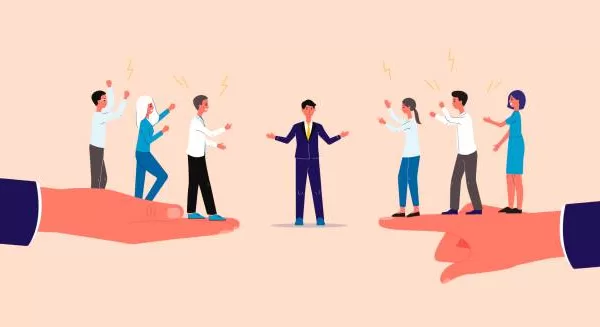We spend a lot of time examining what makes teams effective and how to enhance them, but how often do we consider why and when teams are deployed in the first place? The essence of good collaboration is to produce a result that exceeds the quality of an individual effort through a group effort.
Today’s enterprises require the flexibility to quickly assemble, deploy, disband, and reconstruct teams.
So, what are the advantages of working in a group versus working alone? And how do we take use of the benefits of teamwork while avoiding the drawbacks?
Teams provide a wide range of experiences
One individual cannot be an expert at everything. Individuals can share their abilities in complementary roles to generate significant results when they work in teams. Collaboration provides more than the sum of its parts because of the interpersonal dynamics that teamwork develops. If your team doesn’t have a Team Role makeup that matches its purpose and aims, it’s possible that it won’t know what it doesn’t know.
Learning opportunities are facilitated by teams
Working in teams benefits individuals who are exposed to their colleagues’ varied methods, experiences, viewpoints, and talents, which goes hand in hand with diversity. We all have controllable Team Roles — behaviors we may adopt from time to time and cultivate to add another string to our bow – in addition to our ‘natural’ or preferred Team Roles. Observing others perform these tasks is an excellent way to learn.
More difficult problems can be tackled by groups
As projects become more complex, they may become out of reach for a single person. Companies believe that the problems they face have become so complex that successful solutions require the use of teams.
Flexibility is provided by teams
Individual members can come and go, contributing their skills, knowledge, and Team Role contributions as needed, and then moving on as the project moves forward. Individual tasks can be coordinated well to help people work more efficiently, save time, and avoid irritation.
Teams get things done more quickly
When teams work together effectively and workloads are distributed evenly, progress is made more quickly than when individuals work alone.
Teams can reflect the ideals of their organizations
A strong team can be viewed as a microcosm of the company, emulating its ideals and working toward a similar goal. When a team works together to achieve a common goal, the sense of belonging and devotion to the team can extend to the organization as well, providing employees a stronger sense of loyalty to their employer.
Teams not only help us become better workers, but they also help us become better individuals
The human side of work is represented by teams. You must listen to others and be sensitive to their feelings and needs in order to be an effective team member. Empathy and taking turns in talking, according to research into effective teams, led to psychological safety, which is the best predictor of success.
So, why do things go wrong when teams are so important?
So, what exactly does “collaborative overload” entail? The over-reliance on collaboration and teams. Over the last two decades, time spent by managers and employees in collaborative activities has increased by 50% or more, although not always to the benefit of individuals or organizations.
Demanded, but unengaged. Despite being clearly recognised by colleagues as competent and significant contributors, those who are in highest demand as collaborators in their workplaces had the lowest engagement and job satisfaction scores. They wanted to do more training, coaching, and mentoring since they were tired with spending time on ad hoc requests. The degree of involvement increased after they were interacting more effectively.
People do poorly because they are overworked. It is the manager’s obligation to ensure that work is spread effectively rather than being piled on the few who are willing. Allowing helpful individuals to become bottlenecks is a disservice to everyone involved, from the individual to the team – even the customer?
So, how do we make the most of teamwork’s advantages?
A variety of suggestions have been made.
- When allocating work, think about whether it could be done more successfully by an individual or a well-matched pair.
- Protect the definition of ‘team’ — teams should not be big groups of people with no shared identity or goal. When a team is needed, the number of people on it should be kept modest to avoid alienation, groupthink, and ineffective meetings — we believe four is the optimal number.
- Create teams “on purpose” — in order to be truly effective, teams must be deliberate in their structure, intent, and goals. The goal is to efficiently distribute tasks, which requires understanding what each person has to give and ensuring that they are utilizing those assets. But wait, there’s more…
- Reflection is required to develop a truly positive team atmosphere — on what worked effectively and how behaviors were used to benefit the team. Positive feedback is passed on to the next team, making that person a more productive and engaged collaborator.
Teams have the ability to surpass individuals due to the numerous talents they bring to the table, yet they frequently fail to do so. Finding ways to inform team members about how their actions have benefited others in the past might help alleviate fears of social acceptance that come with sharing one’s distinctive opinions and identity. Making people aware of their own capabilities leads to improved team communication and, as a result, increased performance.
Next steps
Our team development options such as our ‘Belbin Experience‘ can help identify individual strengths and offer advice on how to allocate work most effectively within your team. Are you ready to optimise your team? Start your Team Building journey today.




